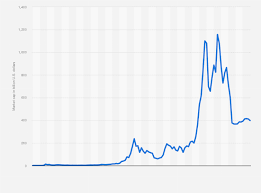Ethereum has revolutionized the way we think about blockchain technology with its introduction of smart contracts. These self-executing contracts with the terms directly written into code have enabled a wide range of decentralized applications (DApps) and innovative solutions across various industries. This blog explores how Ethereum smart contracts work, their fundamental components let’s explore;
What is an Ethereum Smart Contract?
An Ethereum smart contract is a piece of computer code that automatically executes, controls, or documents legally relevant events and actions according to the terms of the contract. Unlike traditional contracts, which require intermediaries and manual enforcement, smart contracts operate on the Ethereum blockchain and execute actions automatically once predefined conditions are met.
How Do Ethereum Smart Contracts Work?
Ethereum smart contracts have become a cornerstone of blockchain innovation, enabling automated, decentralized transactions and processes across a variety of applications.This section delves into how Ethereum smart contracts function, including their core component,
Working Process of Ethereum Smart Contract
Let’s embark on a detailed exploration of the working process involved in;:
-
Code and Deployment
At the core of an Ethereum smart contract is its code, typically written in a programming language called Solidity. Solidity is specifically designed for Ethereum and is used to write the logic of the smart contract. Once the code is written, it is deployed to the Ethereum blockchain. Deployment involves creating a transaction that includes the contract’s bytecode (compiled version of the code) and sending it to the Ethereum network.
-
Blockchain Integration
After deployment, the smart contract is stored on the Ethereum blockchain. The blockchain is a decentralized ledger that records all transactions and contract executions. Each contract is assigned a unique address, which is used to interact with it. The decentralized nature of the blockchain ensures that once a smart contract is deployed, it cannot be altered, providing security and transparency.
-
Interaction and Execution
Smart contracts are designed to be triggered by specific conditions. These conditions can be based on external inputs or events, such as a payment being made or a certain date being reached. When these conditions are met, the contract’s functions are executed automatically. This execution is facilitated by Ethereum’s virtual machine, known as the Ethereum Virtual Machine (EVM), which processes the contract code and ensures that it runs as intended.
-
Gas and Transactions
Executing a smart contract requires computational resources, which are measured in units called gas. Gas is a way to allocate resources on the Ethereum network and incentivize miners to include transactions in the blockchain. When interacting with a smart contract, users must pay gas fees, which are determined by the complexity of the contract and the current network conditions. These fees ensure that the network remains secure and prevents abuse.
-
Decentralization and Security
One of the most significant advantages of Ethereum smart contracts is their decentralization. Unlike traditional contracts that rely on intermediaries, smart contracts run on a distributed network of nodes. This decentralization enhances security and reduces the risk of tampering or fraud. Once a contract is deployed, its code is immutable, and its execution is transparent, providing a high level of trust and accountability.
Hence working process is explained, Ethereum smart contracts represent a transformative leap in how we execute and manage digital agreements. By embedding contract logic directly into code, Ethereum smart contracts eliminate the need for intermediaries, automate complex transactions, and ensure a high level of security and transparency. The deployment process involves writing code in Solidity, deploying it on the Ethereum blockchain, and interacting with it via unique addresses
Components of an Ethereum Smart Contract
Understanding the core components of an Ethereum smart contract is essential for grasping how these innovative tools function and contribute to the blockchain ecosystem. Each component plays a critical role in the contract's operation, ensuring that it executes correctly and securely. This section will explore the fundamental elements of an Ethereum smart contract,
-
Contract Address
Each smart contract deployed on the Ethereum network has a unique address. This address is used to interact with the contract and is essential for executing its functions.
-
Contract Code
The contract code, written in Solidity, defines the logic and rules of the contract. It includes functions that specify the actions to be taken when certain conditions are met. The code is compiled into bytecode and stored on the blockchain.
-
State Variables
Smart contracts can store data in state variables, which are used to maintain the contract’s state. These variables can hold information such as balances, user addresses, or other relevant data that affects the contract’s behavior.
-
Events
Events are used to log information about contract execution. They provide a way to notify external applications or users about changes or actions within the contract. Events are an important part of the contract’s interaction with other systems and applications.
-
Modifiers
Modifiers are used to control access to functions and enforce rules within the contract. They can restrict who can execute certain functions or validate conditions before allowing actions to be performed.
Understanding these elements not only clarifies how smart contracts work but also highlights their significance in facilitating secure, automated transactions and processes within the Ethereum network. As Ethereum continues to drive innovation, mastering these components will be key to leveraging smart contracts effectively in various applications.
Conclusion:
From the initial stages of code development and deployment in Solidity to the immutable storage on the Ethereum blockchain, smart contracts ensure a high level of security and transparency. As Ethereum smart contract continues to drive innovation across various industries, mastering these components and the underlying mechanics of smart contracts will be crucial. This knowledge not only enhances the development and deployment of effective smart contracts but also opens the door to new opportunities for leveraging blockchain technology in diverse applications.





